These flowers will last until December – 7 plants that will still be blooming in your yard at Christmas
Seven beautiful flowers that continue blooming into December

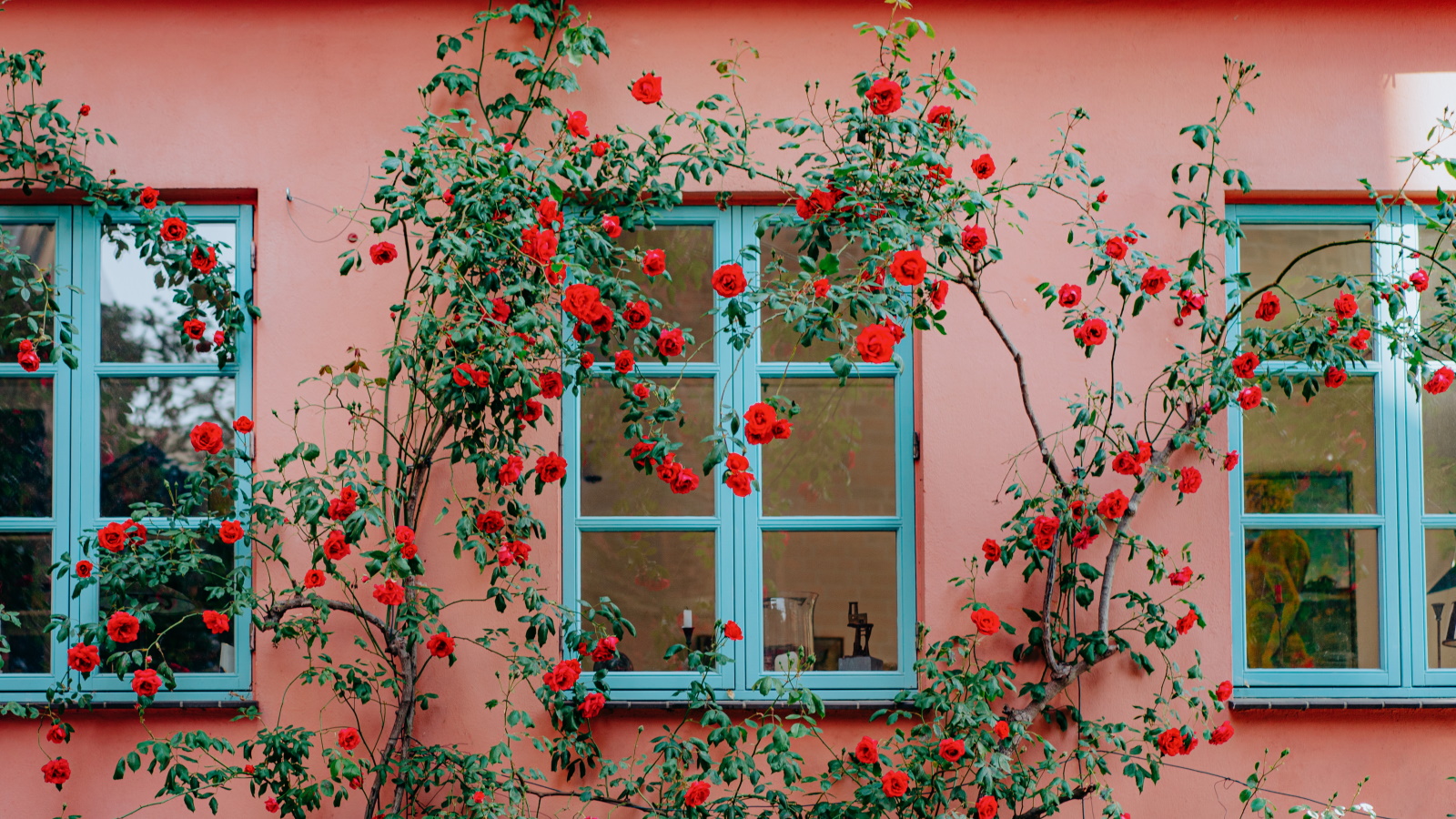
Despite being less verdurous, there is always winter interest in the garden, with beautiful architectural seed heads, evergreen perennials, and the sculptural branches of trees and shrubs that have fallen into a slumber. But there are flowers to be found, too. Real, live, blooming, abundant flowers, if you know what to plant.
Amongst the best winter flowers, there are, believe it or not, several flowers that will last until December, and I have found that there are always enough flowers in the garden to fill at least a jam jar and bring it into the house, even in the darkest, gloomiest months. Christmas isn't merely reserved for holly, ivy, and mistletoe. I have been able to bring in large pewter jugs filled with colorful flowers, tall, cascading, a riot of color. It simply takes knowing what plants will keep chugging on as the temperatures drop.
Here are seven flowers that last right up to, and in some cases beyond Christmas, brought indoors with handfuls of rosemary and ivy, brighten and warm the darkest, iciest of December days.
1. Rosa 'Hot Chocolate'
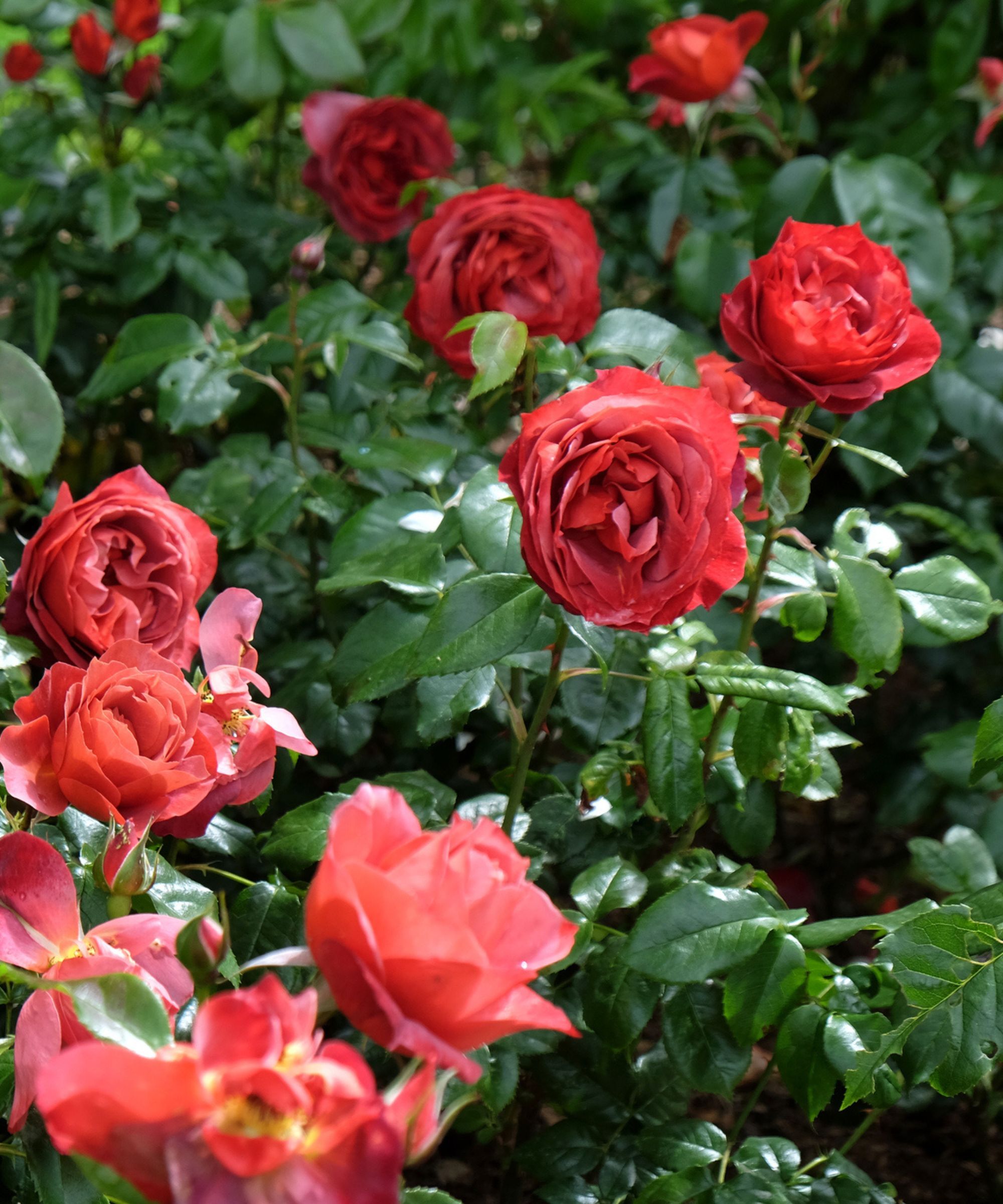
Rosa 'Hot Chocolate'
Rosa 'Hot Chocolate' is a force to be reckoned with. Out of all the long-flowering rose varieties, 'Hot Chocolate' flowers long after the others have packed up shop.
It blooms in May and continues through summer, showing no signs of slowing down by Halloween. By early December, it's still producing flowers, and by Christmas, there are still many beautiful roses to be picked. It is both highly floriferous and highly scented, with incredibly dark, glossy foliage.
The orange flame buds open to reveal warm, velvety, chocolate-brown flowers, which look simply divine in Christmas floral displays during the festive period.
Height: 3.5 ft
Design expertise in your inbox – from inspiring decorating ideas and beautiful celebrity homes to practical gardening advice and shopping round-ups.
Planting Location: In mixed borders or in containers
USDA zones 5-9
2. Daphne bholua 'Darjeeling'
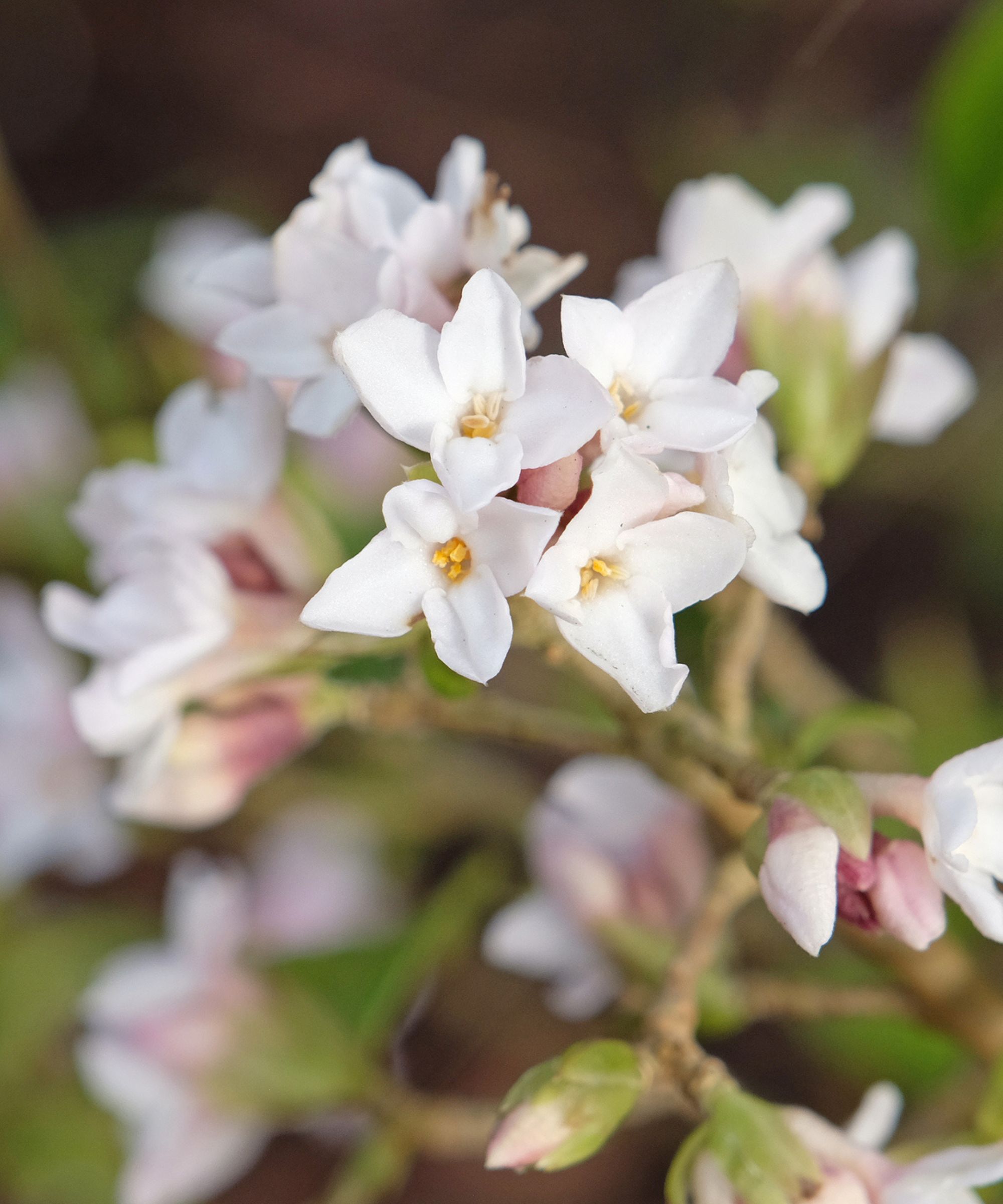
Daphne bholua 'Darjeeling'
This evergreen daphne is intensely fragrant and provides year-round green structure in the garden.
Whilst it looks fantastic all year round, come November, it bears masses of white flowers, and by Christmas, they are in full swing.
They're a doddle to grow, so long as they are fed in February or March with a little bit of organic fertilizer, like this organic sea kelp fertilizer available at Amazon, they will keep flourishing for decades.
Height: 8ft
Planting location: Plant 'Darjeeling' where you can brush past it regularly to experience its intoxicating fragrance. By front doors, back doors, gates, or near patios. Due to their considerable root system, they prefer to be planted in the ground and are not very container-tolerant. Daphnes do not like to be moved, so pick their forever location from the outset.
USDA zones 5-10
3. Rudbeckia hirta 'cherry brandy'
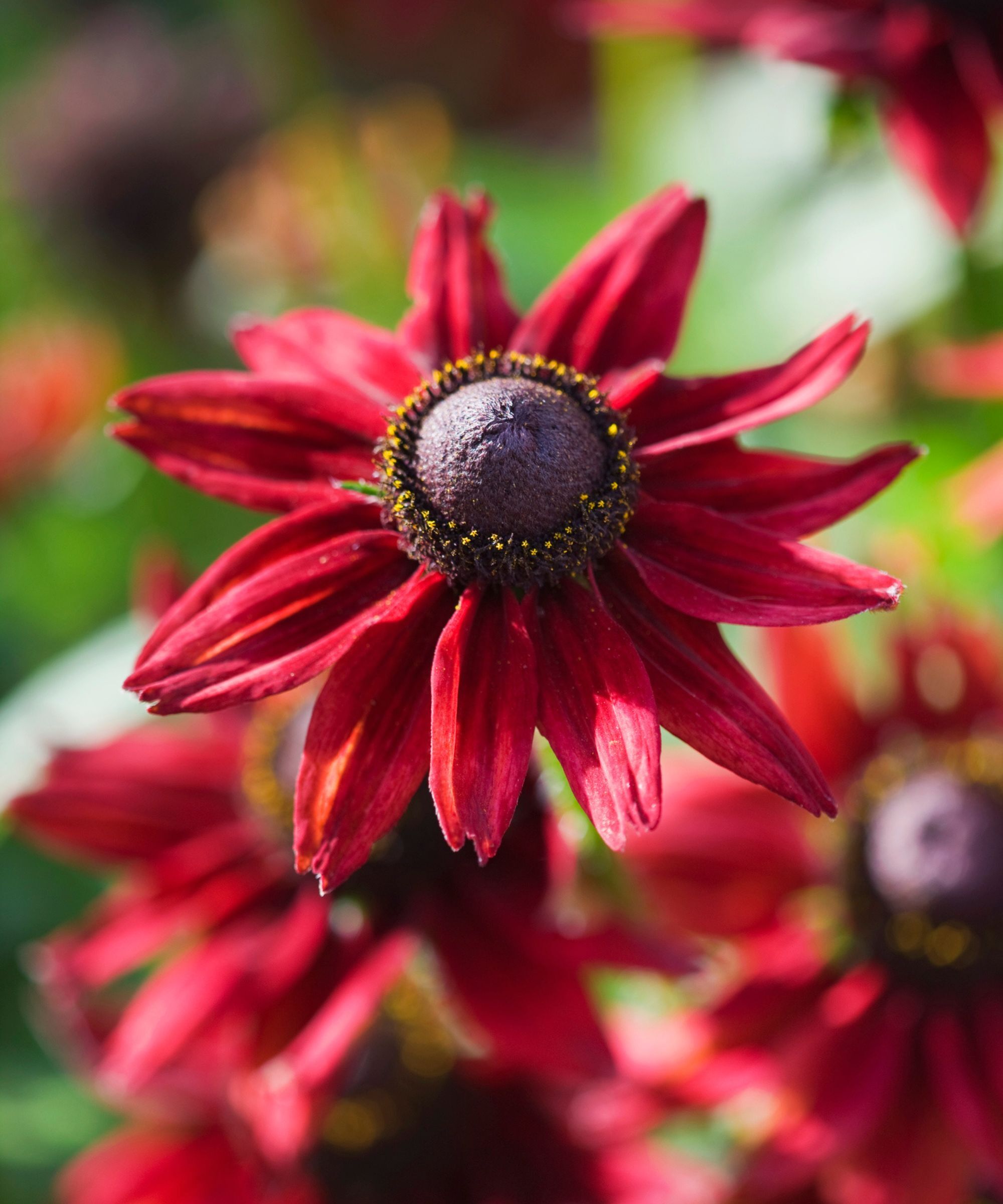
Rudbeckia hirta 'cherry brandy'
The slightest mention of Rudbeckia and many of us instantly think of the garish canary yellow plants that can be a little hard to love. But not 'Cherry Brandy'.
'Cherry Brandy' is one of the very best Rudbeckias on many counts, not least for its rich and highly unusual crimson blooms that appear in July, and so long as you pick them regularly, they will continue to appear without hesitation right through December.
Rather astonishingly, it has a vase life of ten days to two weeks, and I have been known to pick this on Christmas Eve and have it still perky in the vase by New Year's Day.
You can find Rudbeckia ‘Cherry Brandy’ at Nature Hills.
Height: 60cm (24in)
Planting location: Extremely pot-compatible, so one of the best plants for container gardening. Works well in mixed borders as long as the soil is fertile, so keep it well fed. If you have a cutting garden, this is a must-grow flower.
USDA Zones 4-7
4. Hamamelis virginiana (Witch Hazel)
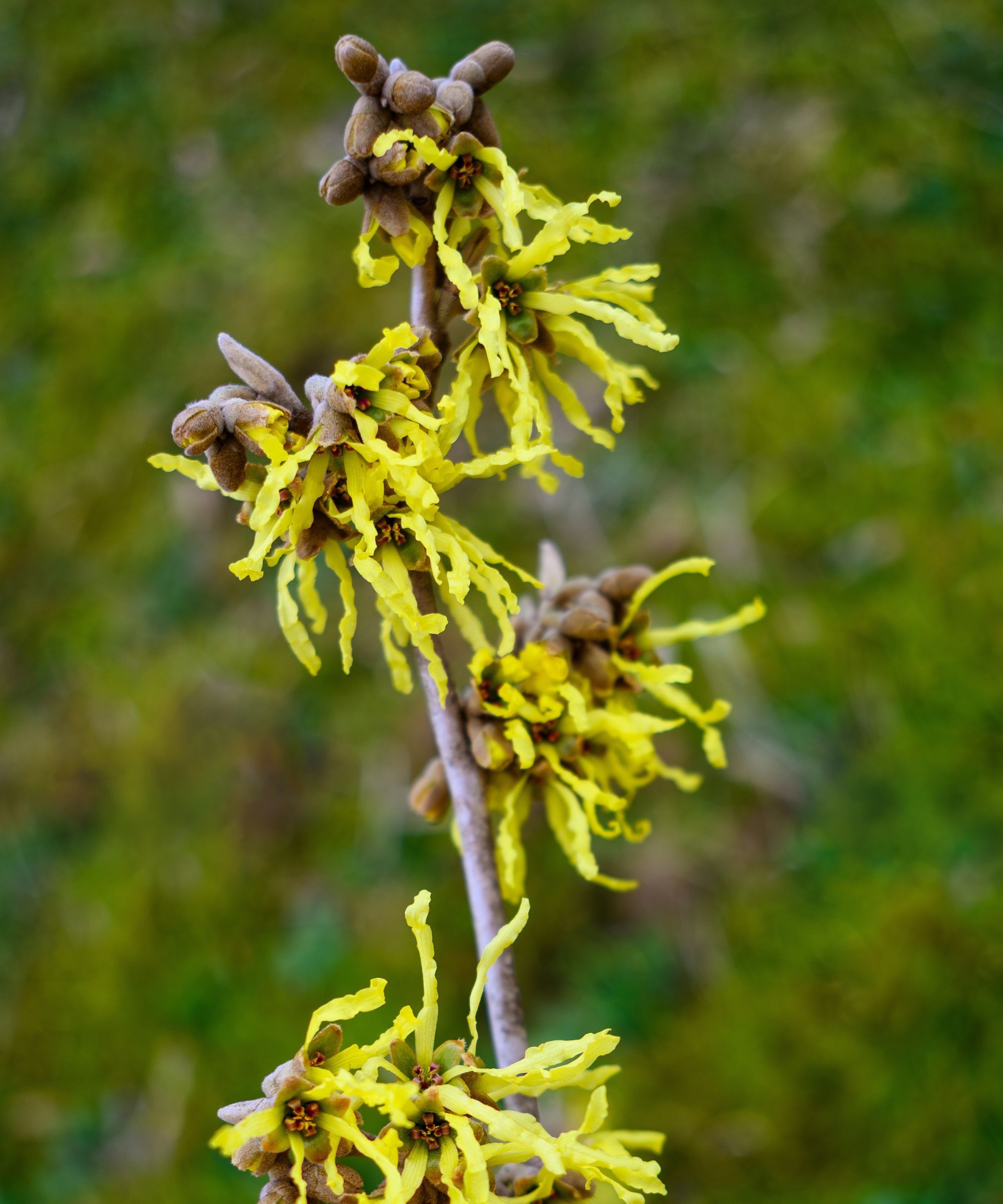
Hamamelis virginiana
The joys of growing a witch hazel plant are relatively new to me, and now I regret not growing one sooner.
It's a rather ethereal, magical plant, with little flame-colored flowers that look like strewn ribbons across the otherwise bare branches.
When brought inside during the cold winter days, it has a sensational, room-filling fragrance that renders scented candles and home fragrance sprays totally useless.
The flowers continue through the whole of December and are a marvellous addition to a homemade Christmas wreath, or, as I do, add it to a pewter jug with ivy and hellebores for a beautiful festive display.
Hamamelis virginiana is a US native variety and can be purchased from Nature Hills.
Height: 15 ft
Planting location: Pick a location in partial shade. Growing witch hazel in pots is just as easy as planting it in the ground. They are incredibly easy-going plants. Just be sure there is good drainage, as they loathe waterlogged soil.
USDA Zones 3-9
5. Cobaea scandens
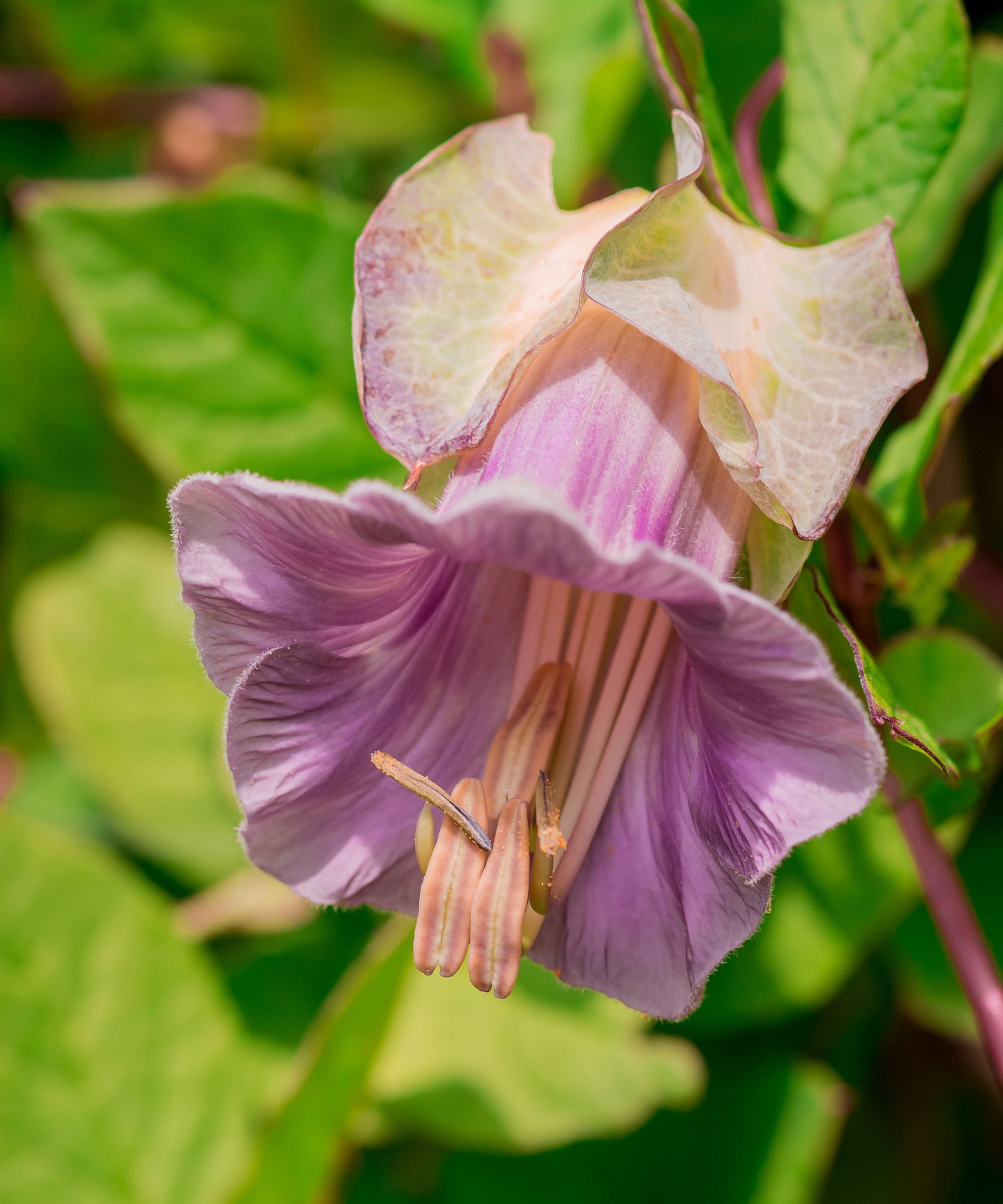
Cobaea scandens sometimes known as 'Cup and Saucer' or 'Cathedral Bells'
Cobaea, often referred to as cup and saucer vine, is one of the very best fast-growing climbing plants for a plethora of reasons. Its eagerness to grow very loftily is, of course, a non-negotiable when it comes to good climbers, and it can soar up to staggering heights of 10-15ft without issue.
But its merits don't stop there, cobaea flowers hard from summer and through winter, and although it should technically stop flowering come the end of October, if it is in a nice sheltered position without intense cold, it will continue to bloom right through to late December or early January.
You can purchase cobaea seeds from Amazon
Height: 10ft
Planting location: Plant on a climbing support in moist soil. It also trails beautifully, so it works at the edge of a pot, and it will cascade beautifully down the side.
USDA Zones 8-11
6. Viola 'Frizzle Sizzle Burgundy'
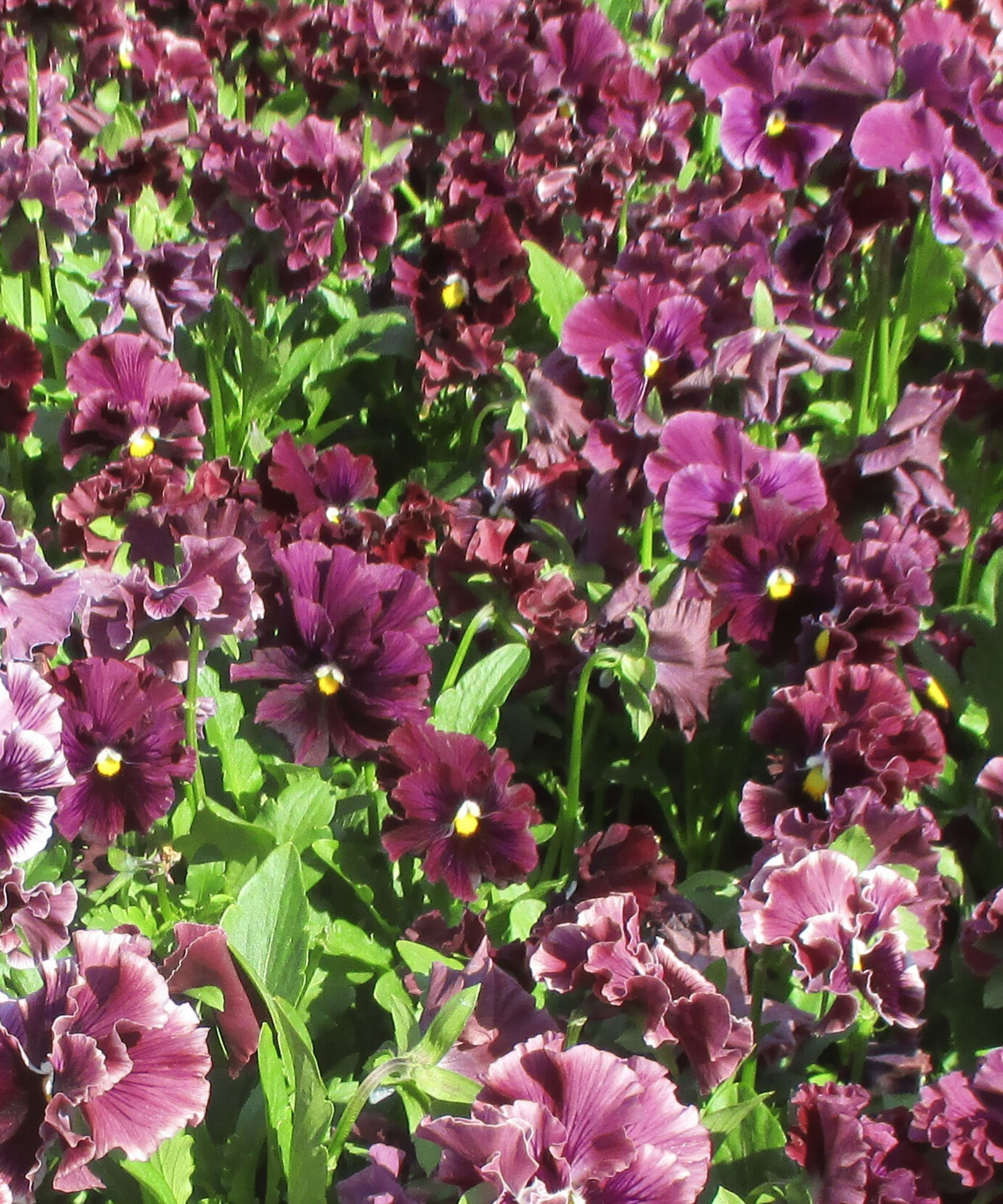
Viola 'Frizzle Sizzle Burgundy'
Viola 'Frizzle Sizzle Burgundy' has both a charming name and a charming character, since its perky double ruffled flowers bloom happily from February to November/December, even when drenched in snow.
To ensure this level of flowering, be sure to deadhead regularly. The intense velvet flowers look lovely on a crisp, cold winter's day, and will keep otherwise empty pots filled through months where little else grows.
Just be sure to keep the slugs at bay, as they like to munch away on violas. Keeping slugs away is the gardener's never-ending headache, but a copper barrier tape like this one available at Amazon will stop them from approaching.
You can purchase Frizzle Sizzle Burgundy seeds from Amazon
Height: 15cm (6in)
Planting location: Grows perfectly in pots. Use a simple organic potting mix enriched with earthworm castings, like this potting mix available from Amazon, and keep deadheading regularly. Works wonderfully on
USDA Zones 3-9
7. Dahlia 'Moor Place'
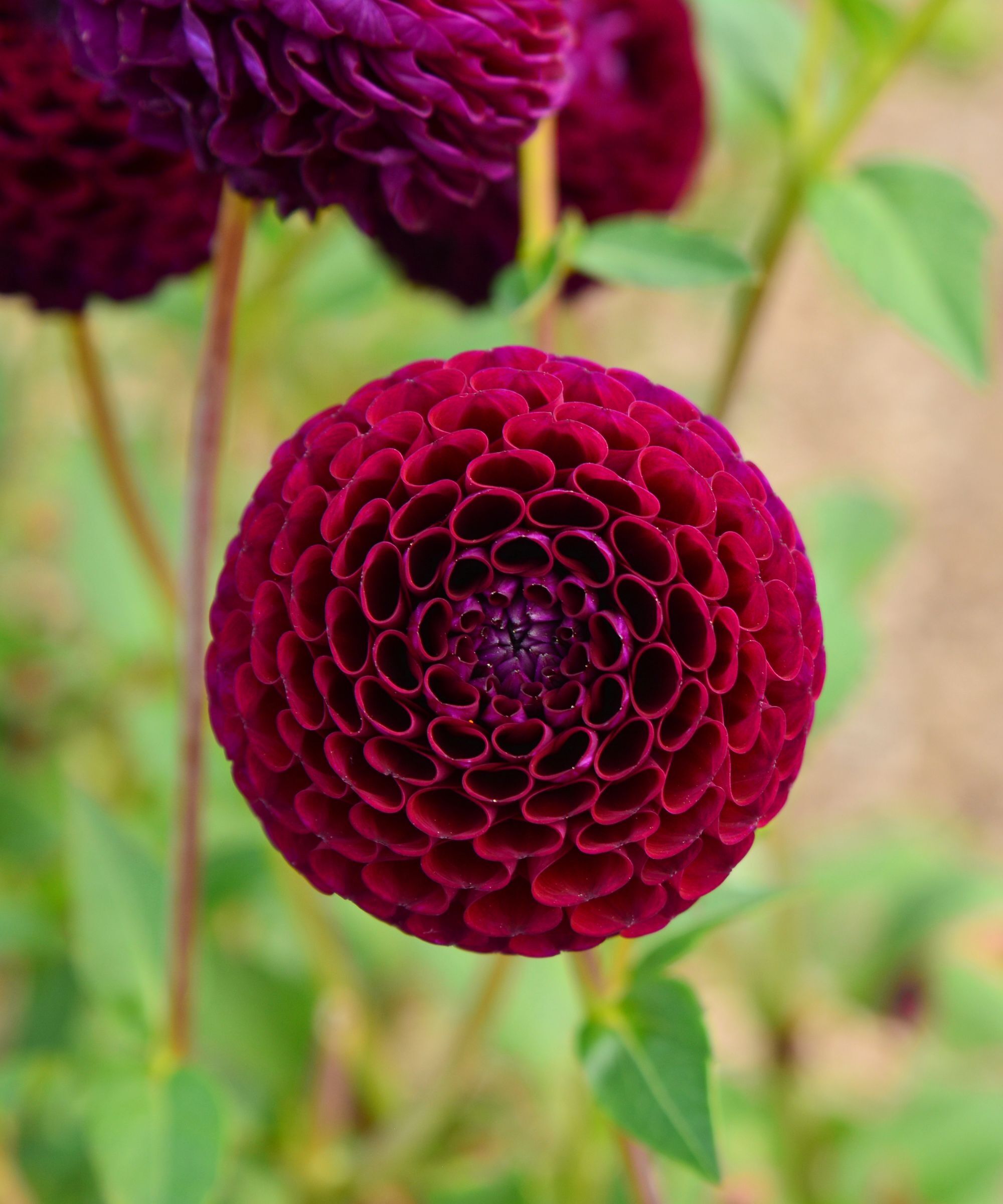
Dahlia 'Moor Place'
Most dahlias will die back when the first hard frost hits in November. But certain types of dahlias can continue to flower even as the temperatures plummet, and if you're looking to grow dahlias specifically for their staying power, then it's the pompon dahlias, like this one, you want to keep an eye out for.
'Moor Place' is the most weather-resistant of them all, and it is easily kept going (with regular deadheading, of course) for use in Christmas bouquets.
It is extraordinarily productive and produces flowers of the most saturated deep purplish-burgundy hue. In the summer, they look beautiful next to Knautia macedonica and acid-green euphorbia. Come wintertime, most other plants will have finished flowering, and this dahlia has enough presence and color to still make a serious impact.
You can purchase Dahlia 'Moor Place' tubers from Eden Brothers
Height: 1.2m (4ft)
Planting location: Dahlia 'Moor Place' works well in a mixed herbaceous border, cutting garden, and really looks terrific in large containers.
You must feed this plant with a potash-rich fertiliser to prolong flowering. This potash supplement available at Amazon will ensure your dahlias will be perfect at ensuring they keep blooming for as long as possible.
USDA Zones 7-10
Even many of the best-performing, longest-flowering perennials, like catmint and geums, won't keep blooming by December, even if you do give them all the TLC in the world.
All of these flowers like to see the sun during the summer months, so if your garden is cloaked in deep shade, you may find that you need to stick to full-shade perennials to deal with these tricky areas.

Sophia Pouget de St Victor is the UK Content Editor at Homes & Gardens, bringing readers the latest trends, expert insights, and timeless design inspiration tailored to a UK audience. With a background in luxury interiors and a qualification in Garden Design from London, she has a passion for creating spaces with character and emotional depth. Sophia gravitates toward interiors that defy definition, valuing individuality and effortless elegance. She lives in West London with her partner, two mischievous terriers, and a plump cat named Lettuce.